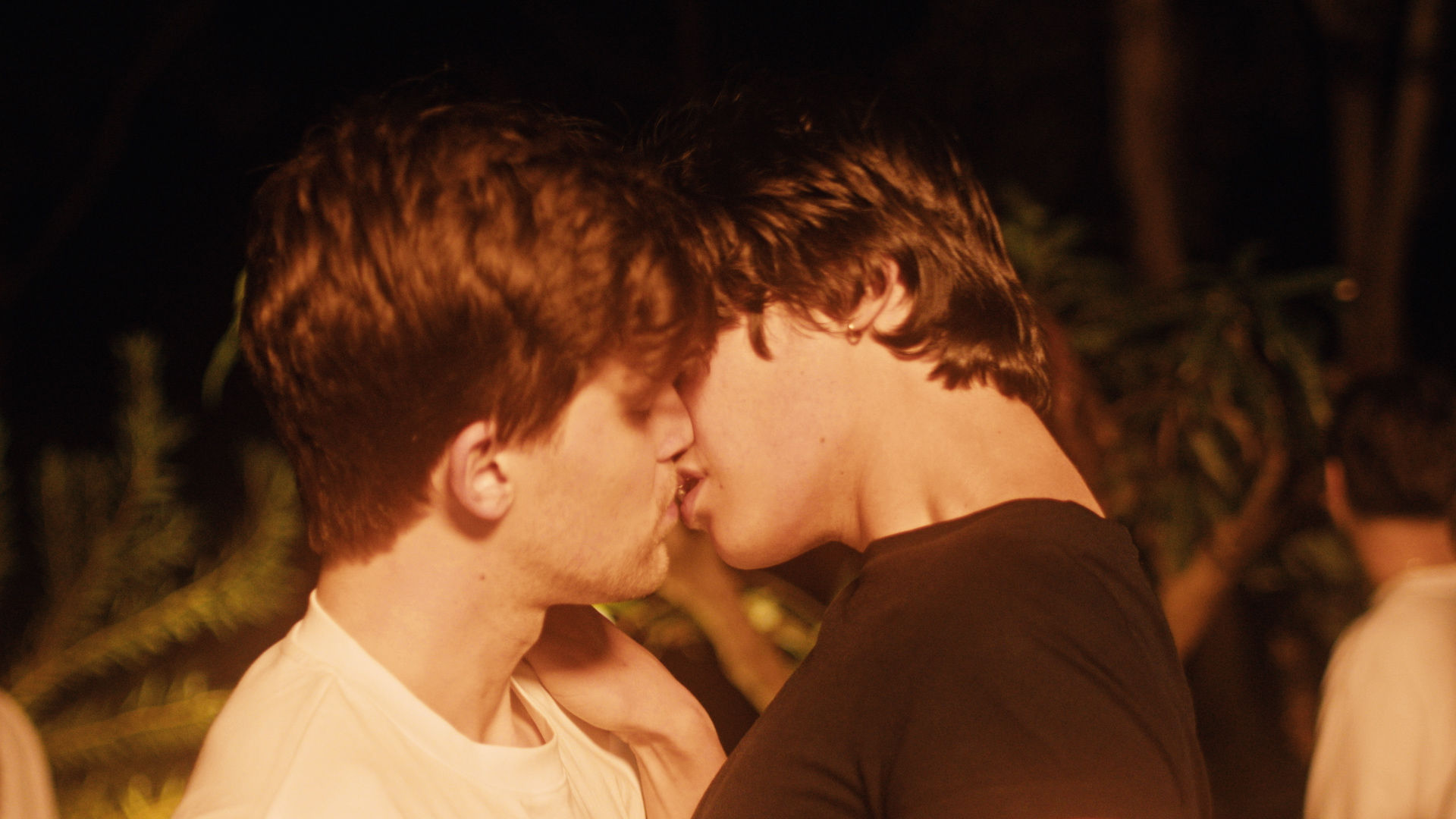“Do you ever wonder what parts of yourself you could be louder about if you had more guts?”
UTS Media Arts and Production student India Goss Maher’s capstone drama, The Trip, delves into the struggle to reckon with your queer identity and other’s perception of your ‘self’, through the complex relationship of Jake and his sort-of girlfriend.
When Jake invites Georgia (George) at the last minute on a road trip to a party, the two find themselves stuck on the side of the road with a broken-down car and the company of an enchantingly carefree hitchhiker/“wandering poet”, Max. At first, the tension between Jake and Max is prickly, as the aspiring novelist asks bold questions that border on invasive. That is until we start to understand that Max’s keen interest in Jake is not just motivated by curiosity, but desire.
This poignant coming-of-age film artfully marries the confusion of feeling like an imposter in your own community and the emotional uncertainty of a situationship. According to co-writer and director Goss Maher, the story was inspired by her real-life experience, and is “an exploration of how we define and find ourselves and our relationships, with a queer focus.”
The Trip is filmed against the warm, sunset-toned backdrop of the twisting branches, gum leaves and dry scrub of the Australian bushland, or as Jake would call it, the “scenic route”. Johan Wan Razlan’s dreamy cinematography captures the brilliant warmth of the Australian sun in every shot. These visuals paired with the upbeat drum beats and phantasmagorical, reverberating electric guitar of Sam Dunn’s original compositions certainly make the film reflect the “transience of youth” that Max seeks on his writing journey. It almost feels like we are watching a sentimental memory of this important turning point in Jake’s queer identity.
Torn between his deep care for George, his attraction to Max and the need for his bisexuality to be validated, the crux of Jake’s inner conflict is the disparity between how he understands his identity and the way that he is perceived by his friends from high school. He is out, but only to the people he knows in Sydney. It’s not that his high school friends would disapprove of his attraction to men, or that they are incapable of understanding it. Jake fears his past self and who he is now converging in the eyes of others — in other words, the meeting of those two deliberately separate worlds.
Goss Maher and co-writer Thomas Burrow brilliantly illustrate what happens after the first ‘coming out,’ a part of the queer journey that many LGBTQ+ stories leave out. Because really, coming out isn’t something you only have to do once. As Goss Maher perfectly puts it, coming out is “an everyday negotiation, rather than a single event.” The film also frames Jake’s coming out at the party in an interesting way — it is entirely nonverbal. His unexpected burst of confidence as he shares an intimate moment with Max on the dance floor is a touching scene that asserts that you don’t need to explain yourself to anyone with labels if you don’t want to, you can just unashamedly be your queer self.
The film also explores another interesting dimension to sexuality: the feeling that you aren’t queer enough because of limited experience. The idea that there are “a certain amount of tally marks you need to qualify as queer”, as Max assures Jake, is not accurate. Jake is drawn to Max for his audacious and romantic personality, but also because he craves to feel in touch with — and valid in — his sexuality. In an emotional moment with George, Jake confesses:
“It was one 3-month relationship with a guy when I was 20. And I know it was real, but it was years ago. It's like I have nothing to defend myself against.”
The ending of The Trip is bittersweet. For some, seeing Jake decide that he can’t commit to a relationship with George until he feels more like himself may feel unsatisfying or even painfully relatable. For me, it’s the best scene in the film. During the final moments, we watch George and Jake sitting together in the car in comfortable silence, only broken by the sound of the indicator, as they begin the long drive home. In this lingering shot we feel the genuine love these two have for each other, only wanting the best for the other person.
Jake doesn’t end up with George or Max, at least not right now, but that isn’t for a lack of mutual affection. He is alone with himself, and that is the best ending for these characters, navigating the messy, confusing and wildly exciting transience of youth. Ultimately, the film isn’t about a love triangle at all. As Goss Maher states, “The Trip is a story about wanting others to know you as you know yourself.”
‘The Trip’ premiered at Queer Screen’s 31st Mardi Gras Film Festival in February 2024.


 -
-